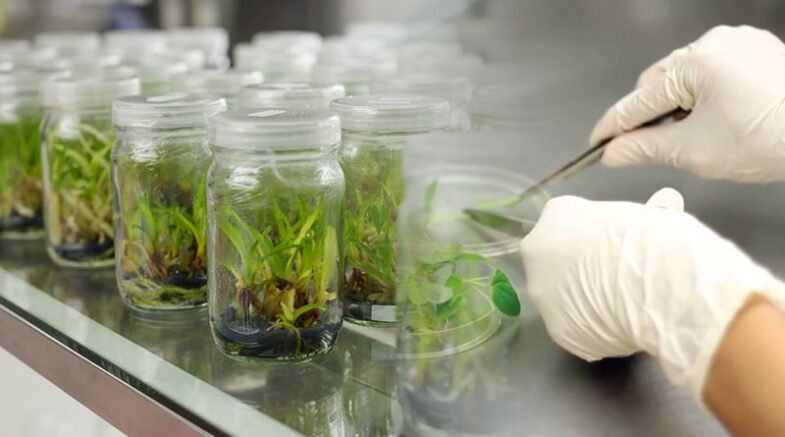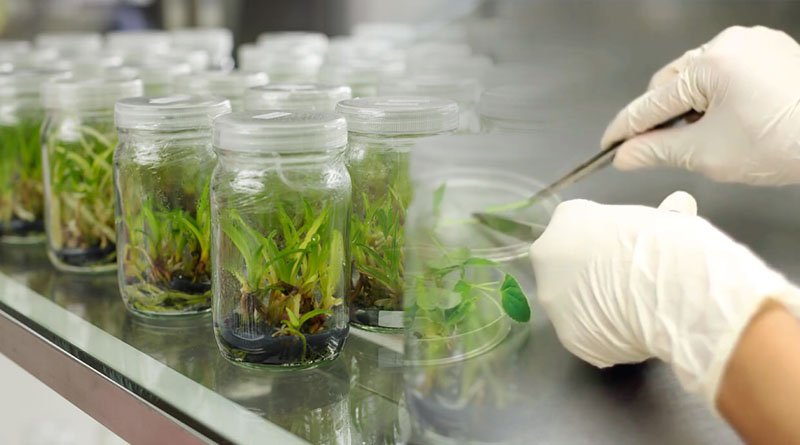One of the few occasions when Pakistan is not only self-sufficient for domestic consumption but also an exporter of potatoes.

“Since most of Pakistan’s potato seeds are imported, the cost of locally produced, high-quality seeds is high and prohibitive for many small-scale farmers. To reduce our reliance on imported seeds, our tissue culture lab is dedicated for production of local high-quality potatoes, “In an exclusive interview with the reporter, Dr. Babar Ijaz, who oversees projects abroad for Shandong Rainbow Agricultural Technology Co., Ltd., revealed this information.
One of the few occasions when Pakistan is not only self-sufficient for domestic consumption but also an exporter of potatoes.
Many different types of crops were destroyed by floods in Pakistan last year, but potato production soared by 35% to 7.937 million tons in FY22 from 5.873 million tons in FY21 because floods did not affect Punjab, which is a centre of potato production. Pakistan, on the other hand, imports 20,000 tons of Potato seeds annually.
“Because of their high initial production costs, potatoes are not a crop for the underprivileged. Seeds account for 35 to 40 percent of the cost, according to “Director of the Sahiwal Potato Research Institute, Syed Ijaz ul Hassan. Chinese and Pakistani businesses have been working hard to find opportunities for collaboration in the face of this status quo.
“Chinese investors are welcome for potato byproducts related to seed production as well. Along with mechanised harvesting, pest control is rife with opportunity,” according to Dr. Babar Ijaz.
“Early blight, stem rot, and other diseases are among the most prevalent potato ailments in Pakistan. Chinese varieties, on the other hand, have higher yields and are more pest- and disease resistant, which is exactly what Pakistan needs to learn to improve our own potato germplasm,” he added.
Rainbow and Pakistan’s Beaconhouse Group signed a memorandum of understanding as early as 2018. The majority of the work that was put off by the epidemic this year started to move along more quickly, according to Fan Changcheng, Rainbow’s deputy general manager.
“Shandong Academy of Agricultural Sciences has additionally contributed to our plan to construct the largest potato tissue culture lab in Pakistan. Currently, the first phase of the lab is planning a small-scale tissue culture facility with the aim of producing 500 mu (33.3 hectares), or roughly 1,500 tons of potato seeds, and the second phase will be expanded to 10,000 tons, “said Mr. Fan.
As Mr. Fan said, since Pakistan’s potato seeds are dependent on imports, increasing the supply of local seeds can save precious foreign exchange reserves and increase the income of farmers. If Pakistan can realise the large-scale production of local, high-quality potatoes, in addition to meeting domestic needs, it can also export products to other countries, such as Arab countries.
“At present, Rainbow and Qatar’s vegetable institutions also have in-depth cooperation. Such a long-term plan will not only help Pakistani potato producers get rid of import dependence but also earn foreign exchange,” Mr. Fan stated.
Dr. Babar Ijaz echoed this opinion “First and foremost, we need to make sure that high-quality seeds are produced locally while also raising the level of mechanization and planting technology. Then perhaps we could export potatoes to other nations. For nations with smaller landmasses or those that don’t produce a lot of their own potatoes, we have enormous potential.”
